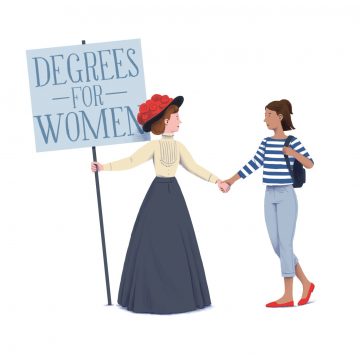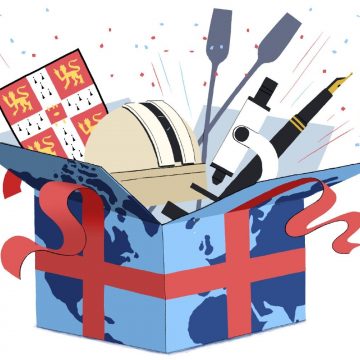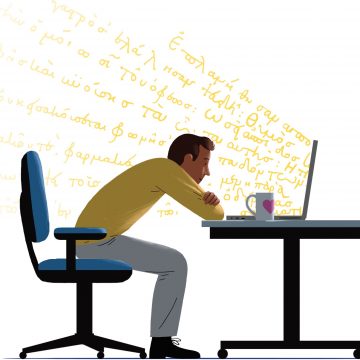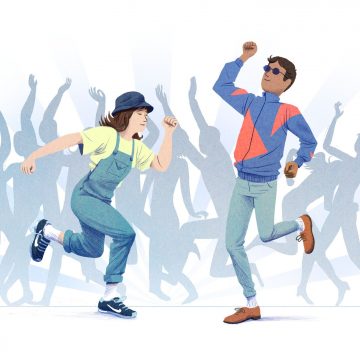Campendium: Michaelmas Term 2017
Research boost; the new VC writes; and Cambridge goes global
Campaign for Cambridge research boost
The campaign for Cambridge is rapidly approaching the £1bn mark, just two years after its public launch, with £947m in new philanthropic funding raised for the University and Colleges.
The campaign, which seeks to raise £2bn, is enabling Cambridge research to continue to find solutions to global challenges.
This year, gifts have included $10m from Lisbet Rausing and Peter Baldwin’s charitable fund, Arcadia, for the world-leading Cambridge Conservation Initiative (CCI), as it develops new approaches to some of the biggest problems facing the planet today.
Two research programmes into ageing, in the MRC Wellcome Trust Stem Cell Institute and Clinical Neurosciences, are being supported by a gift of £7m from William Harrison through the WBH Foundation.
Find out more about how giving back to your College or the University makes a difference.
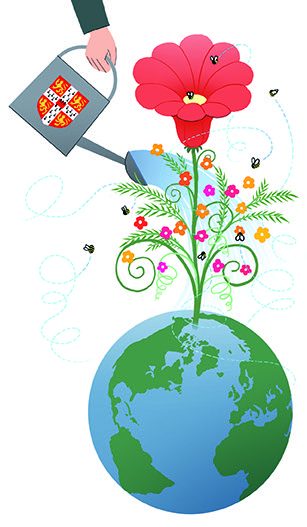
Two-minute Tripos: DNA from Viking cod bones suggests 1,000 years of European fish trade. Discuss
I love Vikings. Pillage! Beards! Extreme violence!
And also fish.
By the beard of Loki! Fish?
Yes. Fish. Cod, to be exact.
Pillaged from soft-handed farmers in a bloody, howling raid?
No. But it could well have been sold to them. New research, from Cambridge, Oslo and the Centre for Baltic and Scandinavian Archaeology, analysed DNA from cod bones found at Haithabu, an early mediaeval trading port.
Had the bones been sliced with the cold steel of a singing axe-blade?
No. But they contained genetic signatures seen in the Arctic stock that swim off the coast of Lofoten, the northern archipelago which is still a centre for Norway’s fishing industry. This means that ‘stockfish’ – an ancient dried cod dish popular to this day – was transported over a thousand miles, from northern Norway to the Baltic Sea.
But how might this challenge our preconceptions of the Viking age, by Thor’s hammer?
Dr James Barrett, senior author of the study from the McDonald Institute for Archaeological Research, says it demonstrates that the Viking world was complex and interconnected – where a chieftain from north Norway may have shared stockfish with Alfred the Great while a late-antique Latin text was being translated in the background, and town dwellers of a cosmopolitan port in a Baltic fjord may have been provisioned from an Arctic sea hundreds of miles away.
The poets will make sagas of these fish that will make the gods weep.
And they might also continue their research. Owing to the small size of the current study, researchers weren’t able to determine whether the cod was transported for trade or simply used as sustenance for the voyage from Norway.
See: Ancient DNA reveals the Arctic origin of Viking Age cod from Haithabu, Germany, published in Proceedings of the National Academy of Sciences.
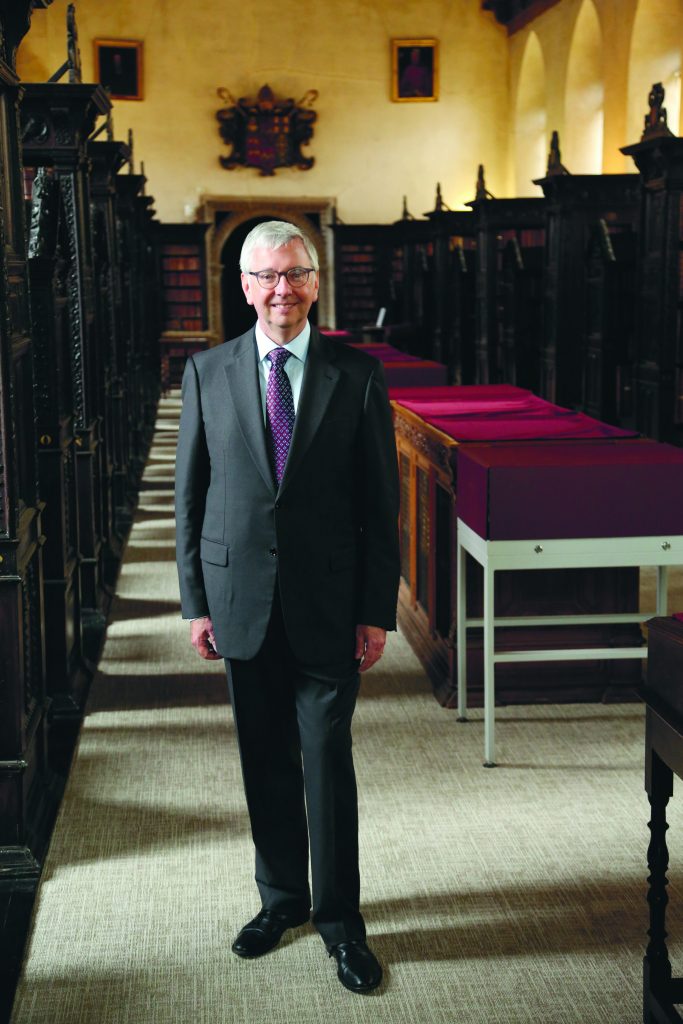
New Vice-Chancellor for Cambridge
On 2 October, Professor Stephen Toope became the 346th Vice-Chancellor of the University. Addressing a Congregation of the Regent House during his admission to office, Professor Toope (Trinity 1983), said: “My time as a PhD student at Cambridge was personally rewarding and career-defining. What I learned then has served me well, ever since. So I am thrilled to return to serve an institution from which I gained so much.” Born in Montreal, Professor Toope studied History and Literature at Harvard, before earning degrees in common and civil law at McGill. He was previously Director of the University of Toronto’s Munk School of Global Affairs (2015-2017), and before that President and Vice-Chancellor of the University of British Columbia (2006-2014).
Addressing the global issues that the University of Cambridge can tackle through its world-leading research, he said: “I am convinced that the challenges today are more complex – and affect all of us more immediately. Take, for instance, the urgent dilemmas posed by new information technologies. Or consider the problems of global food security. For the University of Cambridge, which sees it as part of its mission to actively confront issues like these, one of the greatest difficulties is that we must constantly be prepared to deal with newly emerging questions that we did not know had to be answered.”
Find out more by reading the Vice-Chancellor’s speech, or his special message to alumni.
Tweet of the term
“Jobs, skills, wages, equality, economics, politics, society, contentment, unrest, conflict and everything else summed up in one paragraph” – Jonny Aldridge (Homerton 2008) on CAM’s take on the future of the economy. @camalumni
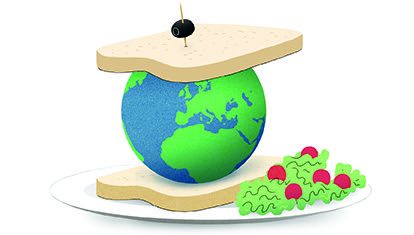
Global Cambridge
Twelve cities. More than 2,000 Cambridge graduates. The Vice-Chancellor and three Pro-Vice-Chancellors. And a record 24 top academic speakers. Global Cambridge – the event series that brings Cambridge to where you are – is going from strength to strength, and the 2017/18 season promises to be just as eagerly anticipated.
Global Cambridge is an opportunity to hear about world-beating Cambridge research and thinking direct from the academics who are behind it. From climate change and globalisation to a changing Europe, the events showcase how the University is addressing some of the biggest global challenges – and offer a chance to be inspired and to network with fellow alumni.
With events planned for next year in the UK, USA, PR China, Ireland, Switzerland, India, Singapore and Hong Kong, there’s bound to be one near you.
Find out more about Global Cambridge.
Kettle’s Yard Reopens
The newly enlarged Kettle’s Yard will open on Saturday, 10 February 2018, and will include major new exhibition galleries, a café and new welcome areas. The opening exhibition, Actions ‘…the image of the world can be different’, will feature works and commissions by 38 international and British artists including John Akomfrah, Rana Begum and Jeremy Deller.
Find out more.
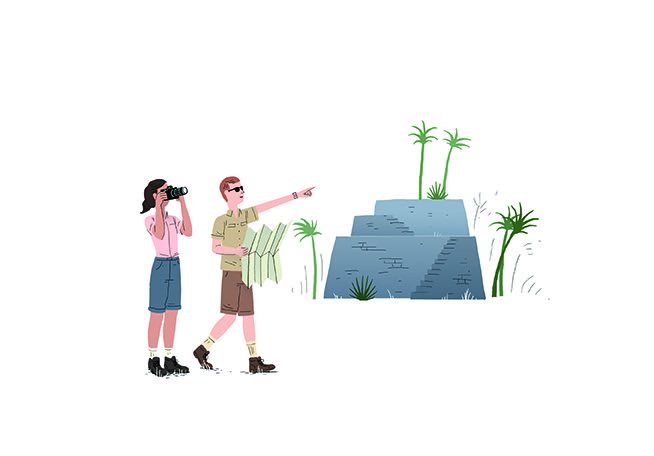
The Alumni Travel Programme
Fancy volcano hopping in Indonesia, tracking the Sri Lankan leopard, searching for pink dolphins in the Amazon or following in Darwin’s footsteps with a Galapagos and Quito cruise? Well, the Alumni Travel Programme might be just the thing. The Alumni Travel Programme is working with three new providers for 2018 tours (AHI, Last Frontiers and Experience Travel), resulting in six completely new and bespoke trips to incredible locations for Cambridge alumni. You’ll travel with likeminded people and expert guides, so if you’d like to discover a new world, please visit the website to find out more.
Find out more about our full range of tours.
New registrary
The University has appointed its first ever female Registrary. Emma Rampton is the 27th person to the post of principal administrative officer – one of the longest continuouslyheld offices in UK higher education. Corpus has also made a new appointment: Professor Christopher Kelly, the current President, has been elected the 52nd Master.
More online journals
You can still enjoy free access to online academic resources even if you’re no longer studying at the University. Alumni and former postdocs can access multiple online journals, including provider of digital humanities and social science content Project MUSE, Emerald Insight and HSTalks’ Business and Management Collection. Alumni have free access to the JSTOR digital library of academic journals.
A top ranking
Cambridge is second only to Oxford in the Times Higher Education 2018 World University Rankings. This year marks the first time in the rankings’ history that two UK universities have held the top spots. Cambridge has risen two places from its position in the 2017 edition. The Times Higher Education world rankings are compiled by judging 1,000 universities on their teaching, research, knowledge transfer and international outlook.

